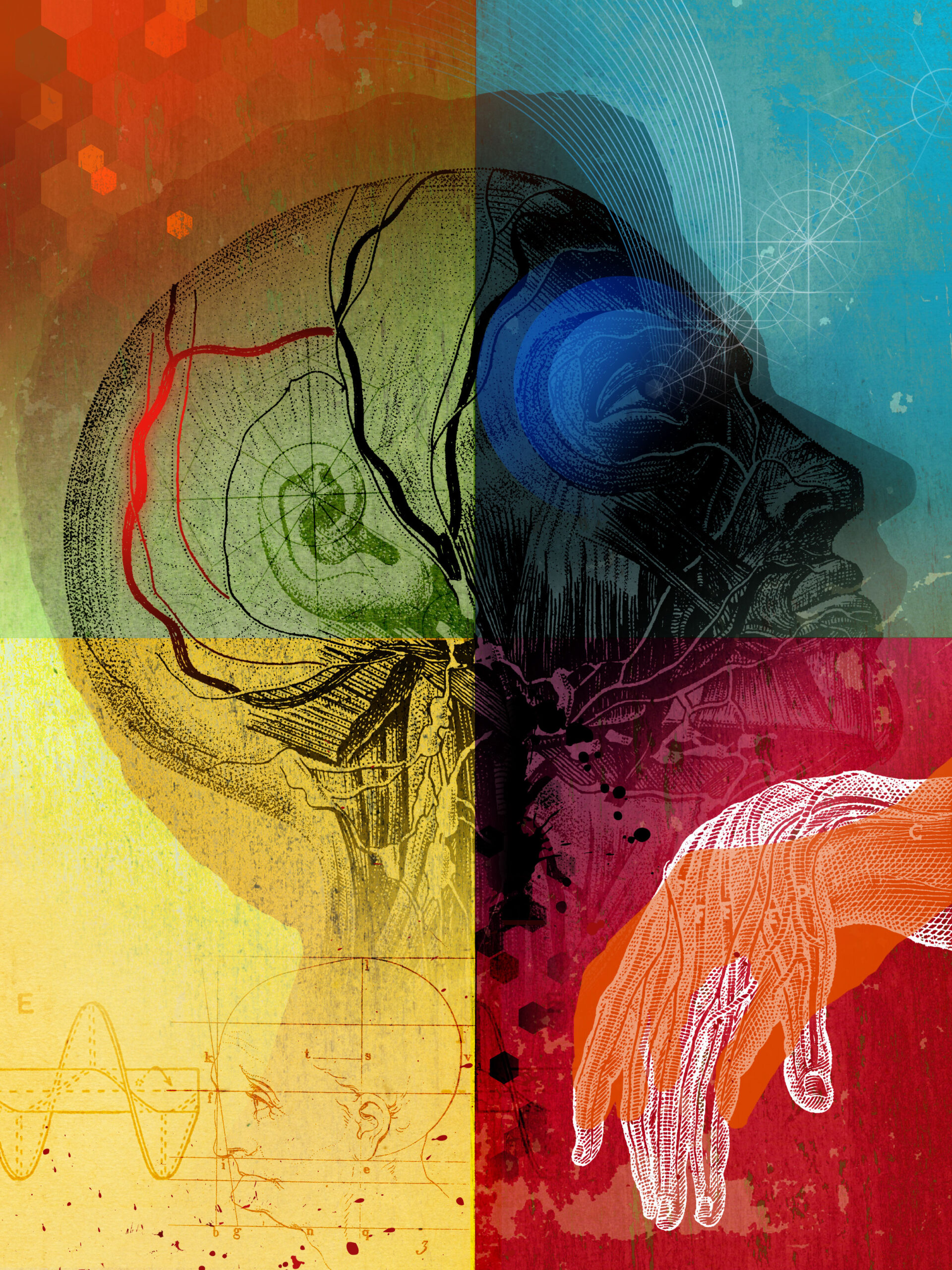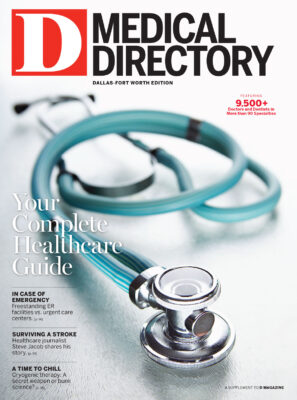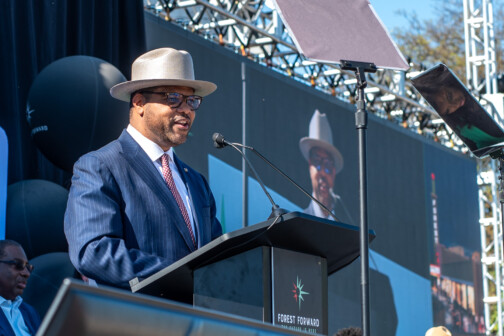I write about healthcare for a living. It’s my job to know what to do to stay healthy and, for the most part, I do it. During most weeks, I do about three hours of heart-thumping aerobic exercise and lift weights for about 90 minutes. On most days, I eat at least 10 cups of fruits and vegetables and consume copious amounts of water. I even meditate to relieve stress.
Health consciousness and long life expectancy runs in my family. My great-grandfather died at age 106. My rather odd middle name — Bernarr — can be traced back to Bernarr Macfadden, whom my grandfather idolized and who preceded Charles Atlas and Jack Lalanne as a personal-health entrepreneur. Macfadden often is credited with beginning the American culture of health and fitness prior to World War I.
In my book Health Care in 2020, I wrote about the American Heart Association’s ideal cardiovascular profile. It has seven factors: body mass index of less than 25, untreated cholesterol under 200, blood pressure below 120/80, fasting blood sugar level below 100, never smoked or quit more than a year ago, exceeds the government-recommended physical activity guidelines, and follows a heart-healthy diet. A University of Pittsburgh study found that fewer than 10 percent of all adults met five or more of the criteria. Those who did had a significantly lower risk of death from cardiovascular disease, compared with those who met none of the criteria.
I recall being silently smug and self-satisfied that I met all seven conditions at age 60. I convinced myself that, although there are plenty of things that potentially could kill me, heart disease would not be one of them.
Trimming the time from symptom onset to clot-busting treatment by just one minute means two fewer days of disability for a survivor.
I was taking a shower. I was scheduled to have a colonoscopy at 6:30 a.m. and had spent the previous day fasting and going through the unsavory process of cleansing my digestive system. I vaguely remember slipping and bumping my head on the way to the shower floor, and thinking I probably was fainting from dehydration due to the colonoscopy preparation.
My wife Paula came into the bathroom to check on me, as I was taking a long time and she needed to get ready as well. She could not see me standing up through the smoked-glass shower door.
“Are you all right?” she asked.
At that moment, I regained consciousness and realized I was lying on the floor with the shower water pounding on me. I said I was, although I am not sure why I said that, other than the fact I was embarrassed.
“Do you need help?” she asked. I said no, though I felt like a boxer who could not get off the canvas after a knockout punch.
“You sound funny,” she said, noticing that my speech was slurred. I tried to blame the shower’s acoustics, but I doubt anything came out of my mouth. I do not remember anything else until I saw emergency medical technicians in my bathroom with a gurney. I had no idea why they were there.
In the ambulance, they asked me questions to test the extent of the damage:
Q: “What year is it?”
A: “1400”
Q: “Who is the president?”
A: Didn’t have a clue.
Q: “Do you know your Social Security number?”
A: “Yes, of course.” However, I could not even come up with the first three numbers.
One of the attendants asked me to move my left arm. I said my brain wouldn’t let me do it. Oddly, I thought it was because I was still half-asleep.
I recall asking if they would take me to Baylor Grapevine or Harris Methodist Hurst Euless Bedford. No, they said. They were taking me to Baylor University Medical Center (BUMC) in downtown Dallas.
With strokes, every minute counts. According to new research, every 15-minute delay in delivering a clot-busting drug after stroke robs survivors of an average month of healthy life. Stated differently, trimming the time from symptom onset to clot-busting treatment by just one minute means about two fewer days of disability for a survivor.
BUMC emergency department personnel administered the clot-busting drug tissue plasminogen activator (tPA) after the obligatory CAT scan. The drug should be given within 4.5 hours after the first sign of symptoms. Thanks to my wife’s decisiveness and the EMTs, we were well within the window. Tests later showed the clot that had traveled to my brain was big, and the tPA blasted to it to pieces, minimizing the damage.
•••
THE PERILS OF OPTIMISM BIAS
Feeling was returning to my left arm, and I was becoming aware of what was going on, even if I had not yet accepted that I had a stroke.
I attribute my stubbornness to a psychological phenomenon known as optimism bias, which I wrote about in my book. It is a major factor in what cripples Americans’ health. People tend to believe they are invincible — and this clearly was me. I thought my healthy habits would protect me from this sort of thing. People with optimism bias expect misfortune to befall others rather than themselves. It is a judgment error, not to be mistaken for an optimistic outlook on life.
Health research is full of optimism bias. Patients guide themselves with half-baked medical theories and misinformation, often with dire consequences for their health and longevity. People tend to predict the future based on experience: If there were no consequences to behavior before, there will be none in the future. They consider themselves somehow exempt from risk.
According to the 2013 United States of Aging Survey, six out of 10 people age 60 or older said they expected their health to stay the same over the next five to 10 years — even though most were not doing much to manage their health over the long run.
This self-confidence can be fatal, and it could have been in my case. People with heart-attack symptoms delay seeking medical attention because the signals do not match their notions of what they think a heart attack or stroke should feel like. Likewise, a majority of patients with high blood pressure believe they can tell whether it is elevated, according to one study, even though the condition has no symptoms.
Rutgers psychology professor Neil Weinstein surveyed adults with risky lifestyles to see how they rated their chances of acquiring health conditions such as cancer or alcoholism, or encountering other negative events such as auto accidents or getting divorced. The response: Somewhere between average and lower than average. The bias occurred regardless of age, gender, income, or education level.
Americans show a stronger association of optimism bias and personal control than non-Americans. The sense of control over events and the concept of personal responsibility are deeply embedded in capitalist nations such as the United States. Such notions tend to result in faulty risk estimations, leading to a disconnect between misinformed judgment and reality.
However, optimism bias is not without its merits. The outlook reflects a high level of self-esteem, which itself is beneficial to good health. An attitude of invincibility has a way of reducing anxiety. People who are optimistic about their futures place a higher value on their health because they expect good things ahead. They are better at building social networks, which helps protect health, and probably are less likely to have had their health compromised by life’s tragedies.
The healthy habits I practice are steeped in evidence-based medicine. However, that alone can feed an optimism bias—despite the fact that medical research is imprecise and often contradictory. Research findings also change at a dizzying pace.
The point is not necessarily to ignore the often-unstable evidence, but to put it in perspective. We don’t know everything, and what we believe to be the truth today may not be tomorrow.
•••
REALITY AND RECOVERY
Baylor clinicians reviewed my test results and quizzed me about my lifestyle. They told me to keep doing what I am doing. That was not comforting. That means there was no obvious cause. The theory is that I may have an irregular heartbeat, which encourages the formation of blood clots. However, there’s no evidence to back it up. I have been wearing a monitor to see if we can document it, and I’m taking blood thinners. Otherwise, nothing has changed.
Optimism bias is fairly immune to intervention, and I have a bad case that I am trying to cure.
• Post-stroke optimism bias symptom No. 1: I kept telling everyone who asked that I had a minor stroke, primarily because I recovered so swiftly. Reality: On a scale of 0 to 25, mine was a 16 — clearly a moderate stroke.
•Post-stroke optimism bias symptom No. 2: I entered the hospital on a Wednesday morning and talked to the nurses about the fact that I had no clothes to wear when I was going to be discharged that afternoon. Reality: I wasn’t going anywhere for awhile.
•Post-stroke optimism bias symptom No. 3: On Thursday, I said I needed to drive on business to Austin the following day and wanted to verify with the physician that it was OK. Reality: See Reality No. 2 above.
•Post-stroke optimism bias symptom No. 4: I insisted I had no stroke risk factors. Reality: Dude, you’re 62. Age is the ultimate risk factor. My sister told me my last surviving uncle was complaining about being hospitalized a few months ago because of blood clots in his lungs. “I don’t understand why this happened,” the 81-year-old said. “I take good care of myself.” OK, I get it.
None of us are bulletproof, despite our best efforts. It’s important to realize that our actions do have consequences — and to remember to enjoy every blessed day on earth.






